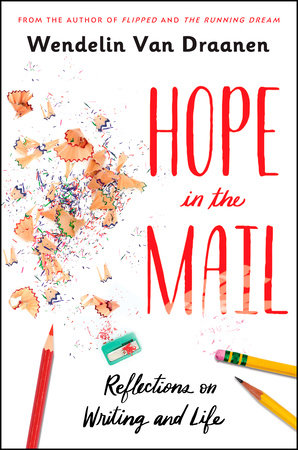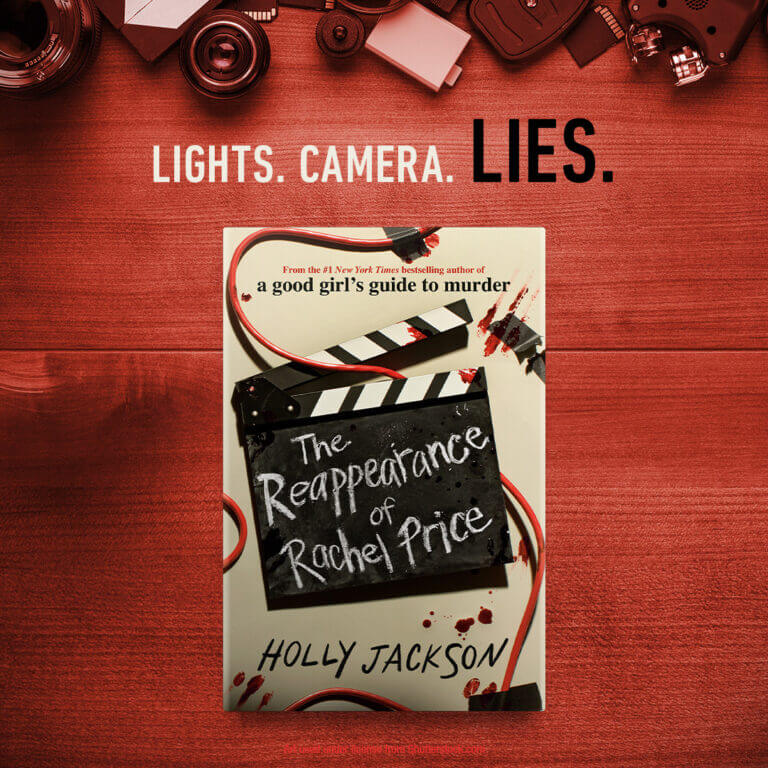Author Wendelin Van Draanen’s Hope in the Mail is part memoir and part how-to guide for aspiring writers. In this post, she tell us more about how she learned to love research and how that helped ignite her writing spark.
Research used to seem like a necessary evil to me.
I would have to bring my writing to a grinding halt so I could get up to speed on something, when what I really wanted was to be spending time with my characters!
Also, aside from time spent away from my characters, there was the definite discomfort of asking real-life people—experts I’d never met before who had knowledge I needed—for help.
But a funny thing happened while writing The Running Dream, the story of a teen athlete whose leg gets crushed in a horrible accident on the way home from a track meet—I learned to like research.
One benefit of being an author is that you’re continually learning things. But it was the real-life people who were willing to share what they knew so I could write a story about a teen amputee that really changed the way I felt about research. Everyone I worked with as I entered this new world was not only eager to help me, they were willing let me into their world so I could truly feel the emotions and find the real heart of the story.
And then when I researched Wild Bird, I learned something else new:
Research is more than just information.
And it’s more than capturing emotion.
Research can lead you to an epiphany that will stay with you forever.
Research can lead you to an epiphany that will stay with you forever.
Wild Bird is the story of a troubled teen who gets sent against her will to a wilderness therapy camp in the Utah desert. Despite all the camping and wilderness survival experience I’d had in my own life, the research I did to explore the setting and the program was extensive, although fairly routine—a lot of reading, a lot of talking with experts and asking questions, and a lot of digging down to reach the emotion behind choices, experiences, and attitudes.
But the epiphany happened quite by accident.
One thing that the troubled teens in Wild Bird are required to do is start a fire using friction. I’d seen other backpackers attempt it, but—having access to matches myself—it never seemed worth the effort to try it.
In many wilderness therapy programs, starting a fire using friction is something campers have to master to cook their food. There’s no faking your competency in this skill. There should also be no faking it when describing it on the page. If I was going to write about it, I needed to involve all my senses so my firsthand knowledge would find its way into my character’s experience.
Once I realized I had to tackle it, I got down in the dirt with my sticks and some cordage and gave it a shot. But after multiple failed attempts, aching arms, and sparks that had glowed a little but not ignited, I was worried that I might not be able to do this after all.
But . . . if Wren had to do it in my story, I’d better know what I was talking about!
So I went at it again, using friction to create another delicate spark that I again transferred into a little nest of kindling. Once again, I blew on the spark, but this time my husband (who was standing by with a fire extinguisher because he has experience with me and my projects) leaned in and helped blow.
And he blew hard.
The nest began puffing with smoke. Little sparks spread through it. And then, with a final breath from both of us—whoosh—it ignited!
I was ecstatic. And it was shortly after my little fire was burning with force that I had that unexpected epiphany. . . .
We hold tiny sparks inside us, and to bring them to life—to really make them burn—they need oxygen. Lots of it. And sometimes, someone lending you breath can be the extra force you need to ignite things. This wasn’t just what my poor, troubled character Wren needed—everybody needs people to lend oxygen to their sparks. All of us face failure and discouragement, but instead of giving up or letting our dreams fizzle, we need to find people who are willing to be the oxygen to our sparks; people who will help us fan those sparks into flames.
So find communities where you’re surrounded by individuals and ideas that lend oxygen to your spark. Let them keep you going! And when it’s your turn, be the oxygen for them. Blow. And blow hard.
Here’s hoping you find ways to ignite your spark and keep it burning long and hot and bright.
****
Wendelin Van Draanen is the author of over thirty novels, including the Sammy Keyes series, Flipped, The Running Dream, and Wild Bird. The spark for this essay came from a chapter in Wendelin’s new book, Hope in the Mail: Reflections on Writing and Life, which is part memoir, part craft guide, and part information on publishing. She hopes it will serve as oxygen to help you reach your writing goals





